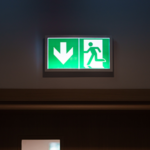In recent years, numerous studies have found that personal cell phone use is hijacking productivity in the workplace. A 2016 CareerBuilder survey concluded that cell phone use and texting was the top productivity killer at work. A similar OfficeTeam survey in 2017 found that professionals waste an average of 56 minutes a day “using their mobile device for non-work activities in the office.” The Journal of the Association of Consumer Research published a study in 2017 that showed the very presence of your phone at work (even when it’s powered off) “reduces available cognitive capacity.” Furthermore, the more you rely on your phone, the worse the cognitive impairment when it’s around.
“If it’s in the environment, it’s almost like it’s calling out to us,” said Adrian Ward of the University of Texas. “We’re automatically drawn to it.”
“And so now the problem becomes not to figure out what to pay attention to, but resisting that automatic pull,” he continued. “You actually have to devote some of your cognitive resources to resisting.”
Consequently, many organizations have moved to restrict personal device use. However, even if your company has not banned cell phone use, you should follow some guidelines when it comes to using your phone at work. Even if you’re not spending an hour a more a day on your personal cell phone at work, it’s important to be mindful about your usage as it can reflect poorly on you.
“Like anything in life… be aware of your surroundings, be aware of the situation, and don’t let distractions like your phone or texting get in the way [of your work product],” career coach Susan Ginsberg O’Sullivan said.
Here are some basic rules you should follow when using your cell phone at work.
1. Lock Up Your Phone at Work
Ideally, you would leave your cell phone in your car or a different room. However, we all know that’s probably not going to happen. However, it’s a good idea to keep your phone fairly inaccessible to help reduce “brain drain” from its presence. Research shows that intermittent distractions like checking your phone or notification sounds can derail your productivity. One study determined that it can take as much as 30 minutes to resume a task after an interruption.
2. Keep Your Phone on Silent Mode
Even having your phone on vibrate can distract you and your coworkers from your work objectives. Most people can hear a phone buzzing even when it’s in a nearby drawer. If you need to stay on top of incoming calls and texts while at work, you can use a smartwatch or activity tracker to receive visual alerts.
3. Let Calls Go to Voicemail
There are exceptionally few calls that can’t wait. For instance, if the school nurse is calling about your child being sick, then you obviously need to deal with it immediately. However, anyone who may need to contact you in case of emergency should also have your work number with a clear understanding that it is only to be used in emergencies. Let calls to your personal phone go to voicemail. Those who have the emergency number can try your work number. All other calls can generally wait. Also, wait until your break to respond to texts.
4. Go Somewhere Private to Make Phone Calls
It’s fine to make personal calls during your break. However, if you share a workspace, you should do this in an area where you aren’t going to distract your coworkers and invade their workflow.
5. Don’t Use Your Phone in the Restroom
Regardless if you’re on break or off the clock, don’t bring your cell phone into the restroom. It’s disrespectful to the person you’re communicating with and invasive to the privacy of your coworkers.
Subscribe to Our Newsletter
Join 80,000+ Fellow HR Professionals. Get expert recruiting and training tips straight
to your inbox, and become a better HR manager.



 KnowledgeCity
KnowledgeCity 












